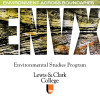ENVS Blog: The Journey Shapes the Destination
Eva Ramey (’15), a Biology major and Environmental Studies minor at Lewis & Clark College, describes how her international research unfolded, beginning with her study abroad experience in Tanzania.
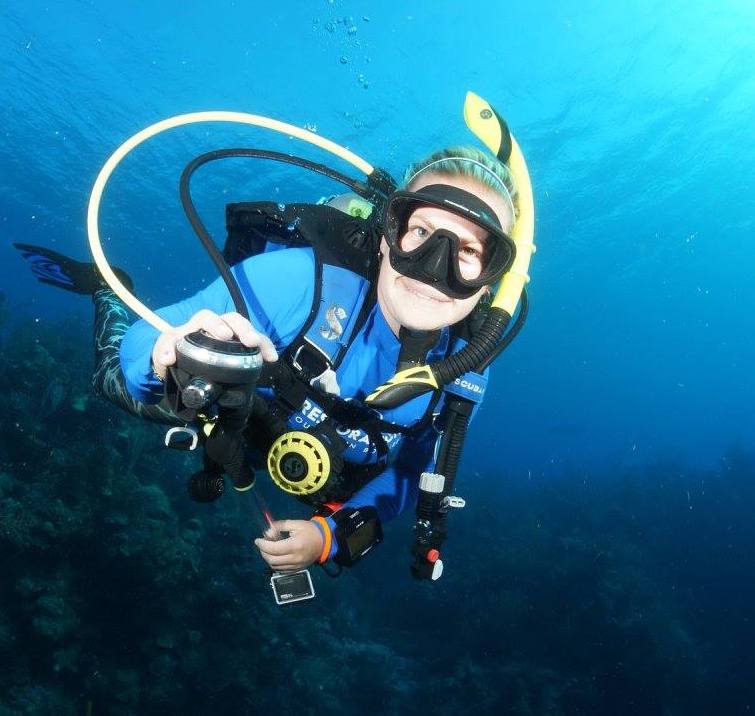
Choosing environmental studies as my minor at Lewis & Clark was pivotal in shaping my current career path. I took almost three years at Lewis & Clark to choose between a major in biology and environmental studies. Looking back on it, I realize that ultimately it was the journey of combining the two programs (a major in biology and minor in ENVS) that gave me so many unique opportunities.
When it came time to choose my ENVS concentration during my sophomore year, I immediately gravitated towards the idea of studying marine ecosystem conservation in East Africa. Marine conservation intrigued me because I had gown up in Colorado and spent much of my childhood in Namibia, where I worked alongside my parents studying desert elephants. As a child, both Namibia and Colorado felt far removed from the ocean.
About a year after I proposed my ENVS concentration, I found myself studying abroad in Tanzania and snorkeling on the very same reefs I had originally proposed to study for my concentration. I quickly fell in love with Tanzania and the Indian Ocean and I decided to stay in Tanzania after my study abroad program had ended. I got my open water SCUBA certification in Tanzania and continued my research project on the coastal reefs. The experience of studying abroad and conducting meaningful research opened so many doors for me and taught me what I was capable of achieving.
Since graduating from Lewis & Clark three years ago, I have traveled, worked and lived in 10 different countries. Immediately upon graduating, I took an internship at the School for Field Studies, Center for Marine Resource Studies in Turks & Caicos Islands. I designed and oversaw field exercises for university students in marine biology and environmental policy and expanded my own knowledge of marine conservation practices. I maintained my love for SCUBA diving, by working as a divemaster and pursuing my SCUBA instructor certification.
I currently work as a middle and high school science educator at an expedition based school in Colorado. The benefit of such an interdisciplinary education is that I’m able to show my students just how closely connected they are to the ocean and the rest of the world as global citizens. I’m excited to have the opportunity to pilot a new overseas program to take my students to Tanzania to learn about the interconnectedness of culture and conservation.
None of what I have accomplished since leaving L&C would have been possible without the support and also the push I received from the Environmental Studies and Biology faculty. Every day, I work to instill the same sense of curiosity, depth of critical thinking and passion for learning in my students that my professors at L&C instilled in me.
For anyone who is currently considering or pursuing an Environmental Studies degree at Lewis & Clark, the biggest pearl of wisdom that I hope I can pass on to you is the following: Never think that you have to have your concentration, major, or career “figured out.” Take every opportunity and every curve ball that your education gives you and run with it. You don’t need to know exactly what your end goal is, because ultimately it’s the journey that shapes the destination.
See a previous alumni story written by Eva in 2014 here.
In March 2025, Eva provided the following update:
I moved to New Zealand last year and I just finished my first year of my PhD at Victoria University of Wellington. I’m currently juggling fieldwork along with some marine monitoring contract work for the Department of Conservation. I’m excited to share the news that I also recently received a substantial grant from the Save our Seas Foundation to allow me to conduct my My PhD thesis research on the spatial ecology and habitat utilization of threatened coastal shark species in Fiordland, New Zealand.
Environmental Studies is located in room 104 of Albany Quadrangle on the Undergraduate Campus.
MSC: 62
email envs@lclark.edu
voice 503-768-7790
Symposium Advisor Jim Proctor
Environmental Studies
Lewis & Clark
615 S. Palatine Hill Road
Portland OR 97219
More Stories
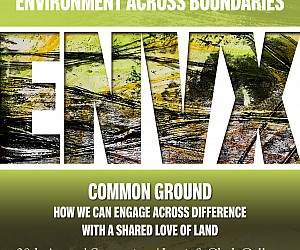
Environmental Dialogue
Planting the Seeds of Common Ground
This year’s ENVX Symposium, Common Ground: How We Can Engage Across Difference With a Shared Love of Land, was held September 29 through October 3. The symposium united panelists and students in dialogue founded upon months of community conversation and outreach.
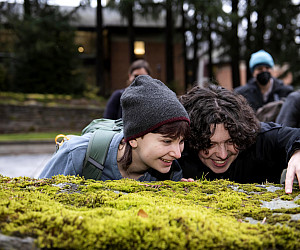
“Green” Leader
Lewis & Clark Named One of Nation’s Top Green Colleges
Lewis & Clark ranks No. 26 on Princeton Review’s 2026 list of Top 50 Green Colleges, earning national recognition for its strong culture of environmental responsibility and sustainability. The honor appears in the newly released Princeton Review Guide to Green Colleges: 2026 Edition, which profiles 388 institutions that demonstrate an exceptional commitment to environmental stewardship.
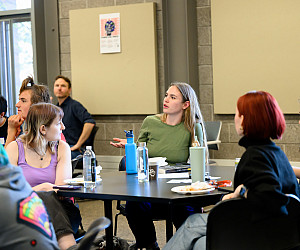
Eco Exchange
Where Environment Meets Community
In this spring’s Environmental Engagement course, students connect classroom learning with real-world conversations, partnering with local nonprofits to address polarizing issues and build mutual trust.

Farming, Oceanography, and the Arctic
Rylie Neely ’20 shares how she continued to use her ENVS education during an unplanned career pause due to Covid.

